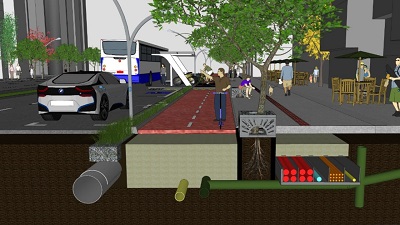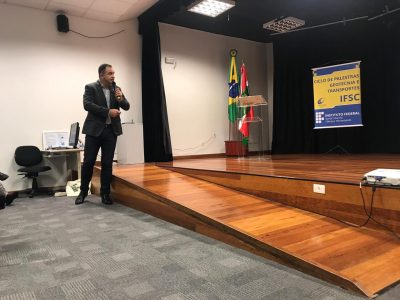Infravias, engineering startup of the Sinapse of Innovation program, will participate in the meeting of the Work Group for Sustainable Urban Mobility of the Brazil-Germany Chamber of Commerce and Industry on May, 29th, in São Paulo. One of the topics highlighted is the use of electric modes of transportation. The startup has also been to different events in the state capital recently.
The Infravia system model, which organizes the energy, telecommunications, gas, water, sewage and urban drainage networks in underground ditches installed under public sidewalks and bicycle paths, provides for the loading of electric vehicles. “All the improvements in the INFRAVIA system have been designed for sustainable smart cities, that is, environments that combine people’s well-being with the available technologies,” explains Infravias CEO Aloisio Pereira da Silva.

Project in Foz do Iguaçu
An urban planning project focused on sustainability is in progress, in partnership with the city hall of Foz do Iguaçu, Itaipu Technological Park and CIBiogás, which will revitalize the Vila A neighborhood in the municipality. In addition to the installation of the INFRAVIA system, a bus stop will be implemented that adds safety, accessibility and comfort to public transport users, using technology tools.
Other innovations that will be used at the bus stop are lighting systems, mobile charging devices (USB) and multimedia display, which will be powered from solar panels. Also will have free WiFi for access to services related to the transport system. Attached to the point, there is a bicycle storage area with possibility of sharing bicycles and scooters.
Participation in other events
The proposal for Foz do Iguaçu was submitted in May to the students and technicians of the Federal Institute of Santa Catarina (IFSC) during the 2nd Cycle of Geotechnical and Transportation Lectures in Florianópolis.

The CEO of Infravias Aloiso Pereira da Silva was also invited to speak at the Floripa Mobility 2019 at the Engineers Association of Santa Catarina in Florianópolis. The meeting brought together engineers, architects, public managers, teachers and students.